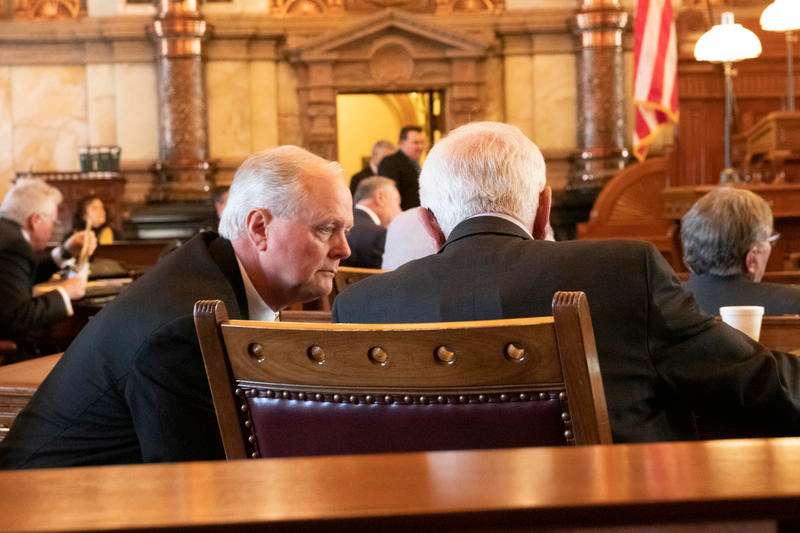
By JIM MCLEAN
Kansas News Service
TOPEKA — Medicaid expansion is a done deal, right?
Democratic Gov. Laura Kelly and Jim Denning, the second most powerful Republican in the Kansas Senate, have compromised on a plan. Together, they bring a majority of lawmakers with them. So, game over.
Sure, the deal still needs to clear the Legislature and get the blessing of federal regulators. But the hard part — breaking an almost decade-long stalemate on the issue — looks done.
Expansion supporters finally have reason to believe that an estimated 130,000 to 150,000 more low-income Kansans will soon have taxpayer-funded health coverage.
Probably. But not necessarily.
A relatively small but committed group of lawmakers could still slow — theoretically, even kill — the deal. They could continue their fight by simply amending the Medicaid expansion legislation to pick apart the terms of the compromise.
Their first chance comes this Thursday when the Senate Public Health and Welfare Committee starts hearings on the compromise bill.
Republican Sen. Gene Suellentrop chairs the committee, where expansion opponents hold a numbers advantage they don’t have in the full Senate. Suellentrop expects them to tack on several amendments. It’s their chance to weigh in on that Kelly-Denning bargain, or what he calls a “kind of a side-negotiated deal.”
Here are four things that opponents could add to upset the carefully balanced compromise:
- A work requirement: Conservatives say requiring non-disabled adults to get a job or prove they’re looking for one promotes accountability. Kelly says studies show that work requirements cost too much to run and mistakenly deny coverage to some. Federal regulators and the courts have blocked work requirements in some states.
- Higher premiums: Under the compromise, people earning between 100% and 138% of the federal poverty level ($25,750 to $35,535 for a family of four) would need to pay monthly premiums. Up to $25 for individuals, no more than $100 for a family. Increasing those premiums could jeopardize federal approval land the state in court.
- Non-payment penalties: Previous expansion plans would have penalized people for not their premiums by “locking them out” of coverage. Lockout periods in those proposals ranged from several months to a lifetime. Kelly and expansion supporters oppose such penalties and say they could also jeopardize federal approval.
- Partial coverage: The position Denning started with would have expanded Medicaid only to those at or below the poverty line. He proposed giving subsidies to those making up to the eligibility threshold to help them purchase regular health insurance on the federal (Obamacare) exchange. Arguing that federal regulators would reject the two-tier approach, Kelly persuaded Denning to abandon the idea.
Expansion supporters say they’re prepared to strip such deal-changers out during debate on the Senate floor. With 22 of the Senate’s 40 members signed on as cosponsors of the bill, they’re confident they have the votes to clean it up.
Even so, Denning is concerned about efforts to undo the compromise. In a lengthy statement this week, he criticized conservative Republicans for leveling “relentless attacks” at the plan.
“Anyone can count the votes and see that Medicaid expansion is going to happen,” Denning said. “Compromise is a part of leadership and I am proud of the plan that Governor Kelly and I have agreed upon.”
If the expansion deal clears the Senate relatively intact, it could still face hurdles in the House.
Most House members support expansion, but Republican leaders don’t. Those leaders are threatening to hold expansion bill hostage for leverage over another hot-button issue: abortion. That’s a potential fifth way to derail the Medicaid compromise.
Jim McLean is the senior correspondent for the Kansas News Service is a collaboration of KCUR, Kansas Public Radio, KMUW and High Plains Public Radio focused on health, the social determinants of health and their connection to public policy. You can reach him on Twitter @jmcleanks or email jim@kcur .org.






